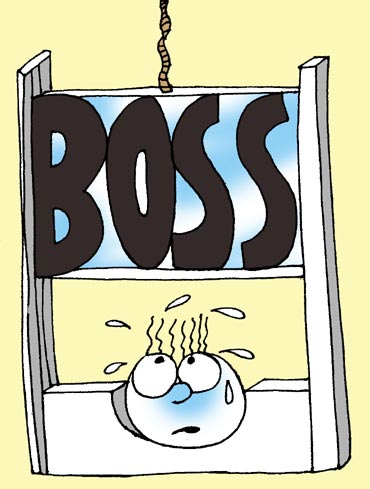 | « Back to article | Print this article |
Indians more OVERWORKED than global peers
A high rate of economic growth seems to be taking a toll on people's work-home balance and more Indians are overworked than their global peers, according to a survey.
More than half of Indian employees work more than eight hours a day and many of them even take their office job home, the survey, conducted by global workplace solutions provider Regus, said.
Also, workers in smaller companies in India are three times more likely to work 11 hours a day compared employees in large business houses.
Click NEXT to read on . . .
Indians more OVERWORKED than global peers
The survey says the days of the 9-to-5 are over and most Indian workers are staying late in office.
"Over half of workers in India work well over eight hours a day and over 40 per cent regularly take work home to finish in the evening," Regus said about the findings of its survey.
"This study finds a clear blurring of line between work and home. Sustained economic growth in the last 3-4 years and substantial outsourcing work done by Indians have contributed to longer working hours," Regus' regional vice president (South Asia) Madhusudan Thakur said.
Click NEXT to read on . . .
Indians more OVERWORKED than global peers
"The long-term effects of this overwork could be damaging both to workers' health and overall productivity as workers drive themselves too hard and become disaffected, depressed or even physically ill," he added.
According to the survey, 45 per cent of Indian workers usually work nine to eleven hours everyday compared to 38 per cent of global workers.
Besides, 10 per cent of workers in India regularly work more than 11 hours a day, the survey said.
Click NEXT to read on . . .
Indians more OVERWORKED than global peers
As much as 44 per cent workers in India take office tasks home more than three times a week, compared to 43 per cent globally.
Regus said, globally remote workers (those working outside their offices) were more likely to work 11-hour days than fixed office workers.
In India, 53 per cent remote workers were found taking tasks home, as against 29 per cent of fixed office workers doing so.
Click NEXT to read on . . .
Indians more OVERWORKED than global peers
Regus said its survey found remote and mobile workers to be generally working longer hours.
However, there was a growing evidence suggesting that remote workers are more productive, have a higher job satisfaction and lower stress levels.
"These workers typically spend far less time commuting, freeing-up more time for their job.
Click NEXT to read on . . .
Indians more OVERWORKED than global peers
"Businesses that enable their employees to work from locations closer to home and manage their time more independently will offset the stress of a poor work-life balance and gain more productive, committed and healthy staff," Regus said.
Regus said that pressure on working hours has arguably increased in recent years because of slow economic recovery in mature economies and, conversely, very rapid growth in emerging ones.





